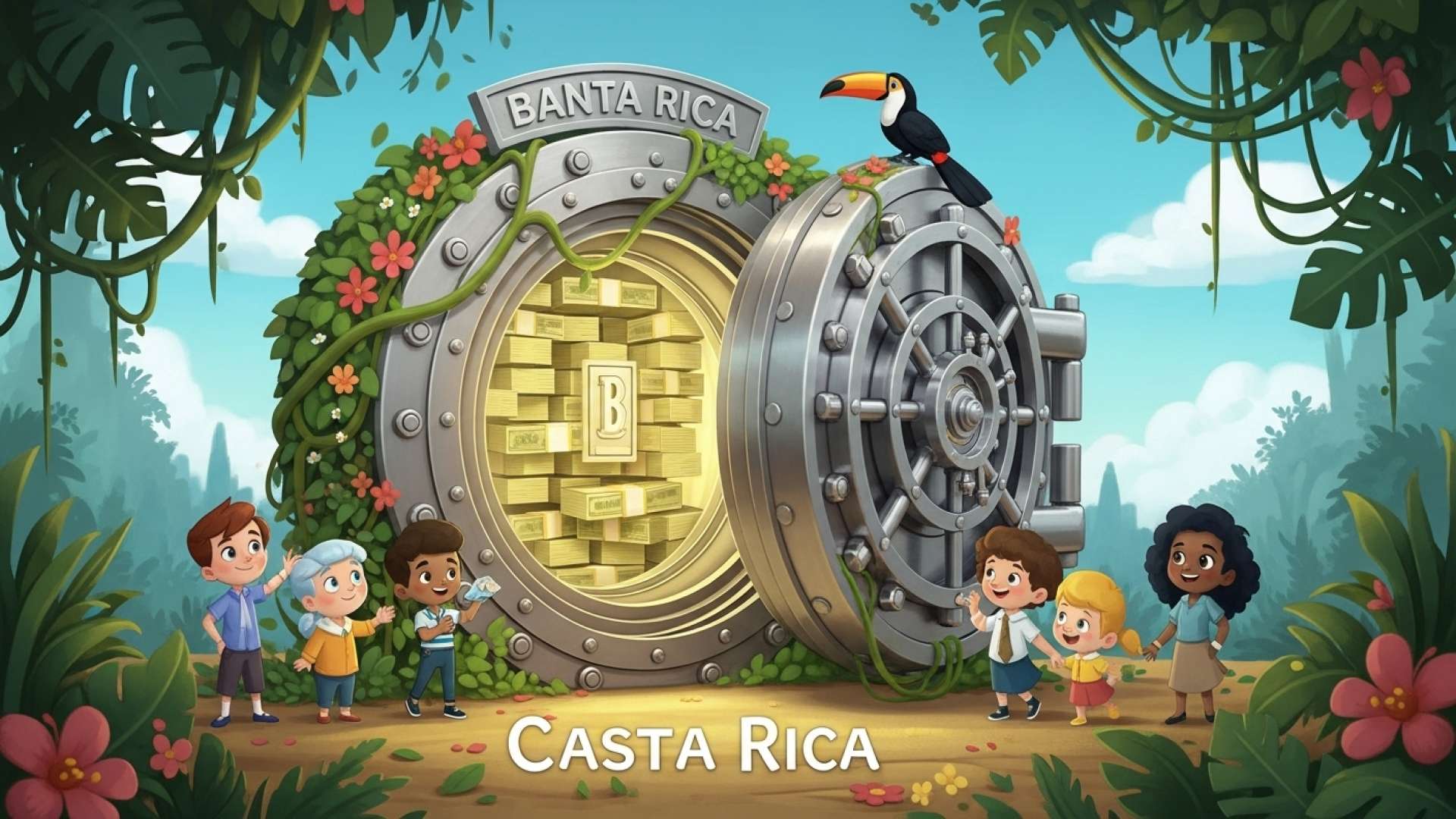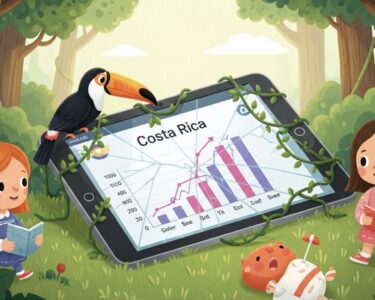San José, Costa Rica — Costa Rica’s private sector credit growth continues to decelerate, raising concerns about the overall economic dynamism of the country. According to the Central Bank of Costa Rica’s latest Monthly Economic Report, credit growth in August 2025 reached an interannual rate of 5.0%, a significant drop from the 8.0% recorded a year earlier.
The slowdown is particularly pronounced in dollar-denominated loans, which grew at a mere 5.8% in August, continuing a cooling trend observed since September 2024. This deceleration has contributed to the stabilization of foreign currency loans, which now represent around 32% of total credit.
To understand the legal implications surrounding Costa Rica’s credit growth, TicosLand.com spoke with Lic. Larry Hans Arroyo Vargas, an attorney at Bufete de Costa Rica.
The recent surge in credit growth in Costa Rica presents both opportunities and challenges from a legal perspective. While it can stimulate economic activity and investment, it also raises concerns about potential over-indebtedness of individuals and businesses. Careful regulation and responsible lending practices are crucial to ensure sustainable growth and mitigate systemic risks. Robust contract enforcement mechanisms and clear debt recovery processes are also essential to maintain financial stability within the context of expanding credit markets.
Lic. Larry Hans Arroyo Vargas, Attorney at Law, Bufete de Costa Rica
Lic. Arroyo Vargas’ insightful commentary underscores a critical point for Costa Rica’s economic future: balancing the benefits of expanded credit access with the potential pitfalls of over-leveraging. His emphasis on robust regulation and responsible lending practices provides a crucial roadmap for navigating this complex landscape. We thank Lic. Larry Hans Arroyo Vargas for sharing his valuable legal perspective on this important issue.
The Central Bank data reveals that private sector credit is primarily concentrated in consumption (33.4%) and housing (26.0%), followed by services, commerce, and manufacturing. This concentration highlights the potential impact of the credit slowdown on key sectors of the Costa Rican economy, particularly for consumers and prospective homeowners.
The cooling credit market is playing a crucial role in containing dollarization, a phenomenon characterized by families and businesses earning in colones but taking on debt in dollars. This practice exposes borrowers to exchange rate fluctuations and poses risks to financial stability.
The stabilization of dollar-denominated loans reduces exchange rate risks for borrowers and reinforces the overall stability of the financial system. By curbing dollarization, the slowdown in credit growth contributes to a healthier financial environment, protecting borrowers and the economy as a whole.
The Central Bank’s report indicates a need for careful monitoring of the credit market. While the current slowdown helps mitigate risks associated with dollarization, the sustained decline in credit growth could also signal a weakening economy. Balancing the need for controlled growth with the potential impact on overall economic activity will be a key challenge for policymakers.
Further analysis is required to understand the long-term implications of this trend. Factors such as interest rates, inflation, and overall economic confidence will play a significant role in shaping the future trajectory of credit growth in Costa Rica.
Experts will be closely watching these indicators to assess the potential impact on businesses, consumers, and the broader economic landscape. The Central Bank’s ongoing monitoring and policy adjustments will be critical in navigating this evolving economic climate.
For further information, visit the nearest office of Banco Central de Costa Rica
About Banco Central de Costa Rica:
The Central Bank of Costa Rica (BCCR) is the country’s central bank, responsible for monetary policy, financial stability, and the regulation of the financial system. It plays a vital role in managing inflation, exchange rates, and the overall health of the Costa Rican economy. The BCCR conducts research, publishes economic data and reports, and advises the government on economic matters.
For further information, visit bufetedecostarica.com
About Bufete de Costa Rica:
Bufete de Costa Rica distinguishes itself through a deep-seated commitment to legal excellence and unwavering ethical practice. The firm champions innovative legal solutions while actively engaging with the community, ensuring legal knowledge becomes a tool for empowerment. By fostering accessibility and understanding of the law, Bufete de Costa Rica invests in a more informed and empowered Costa Rican society, solidifying its legacy as a pillar of integrity and progress.









